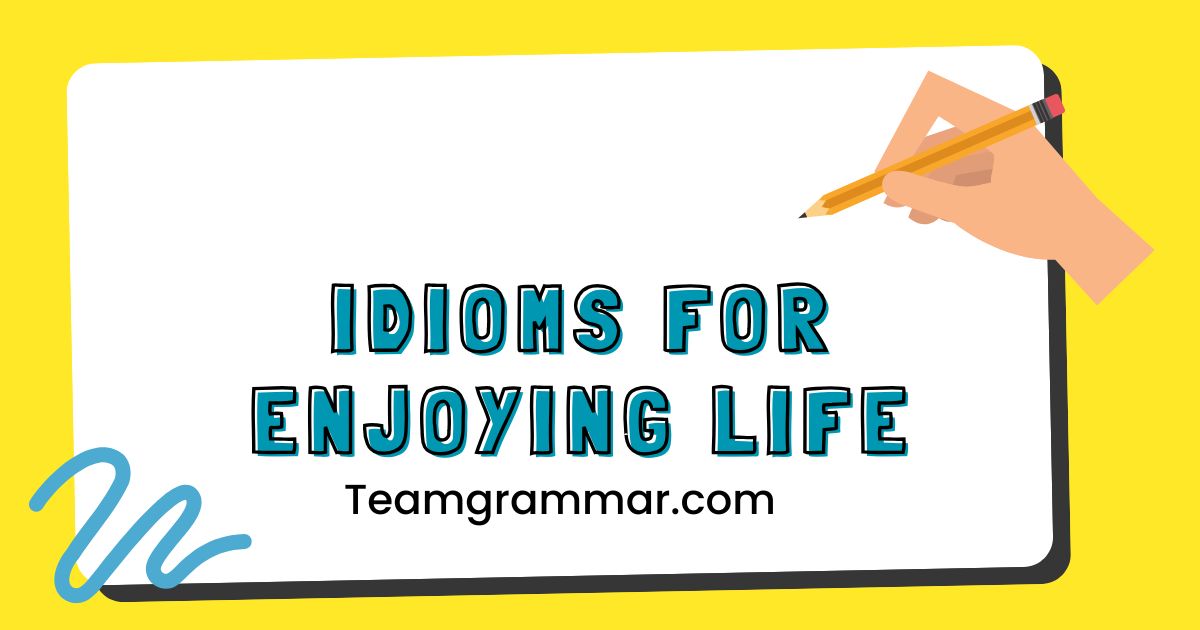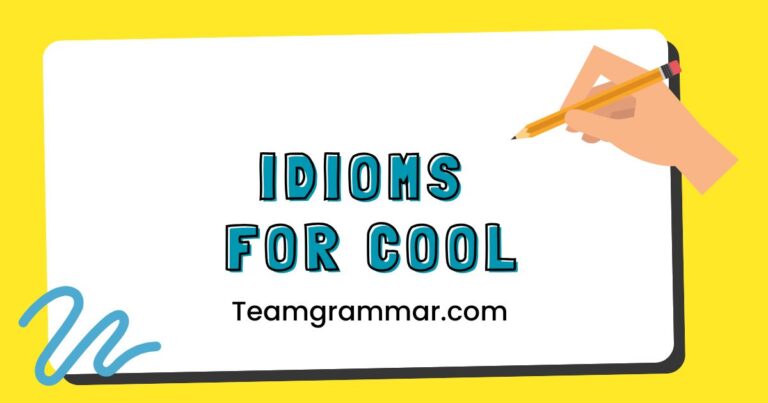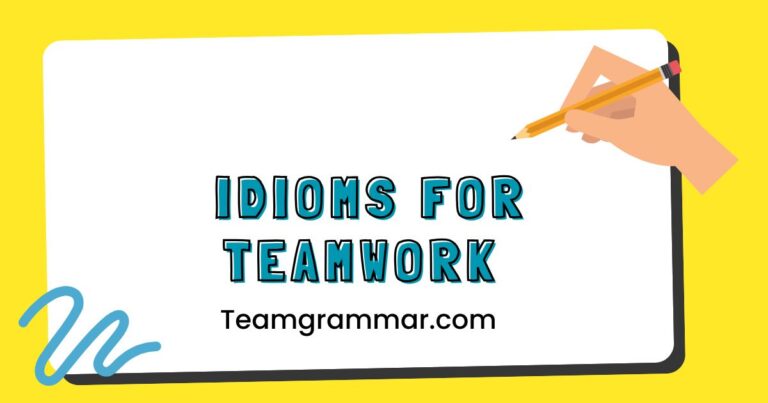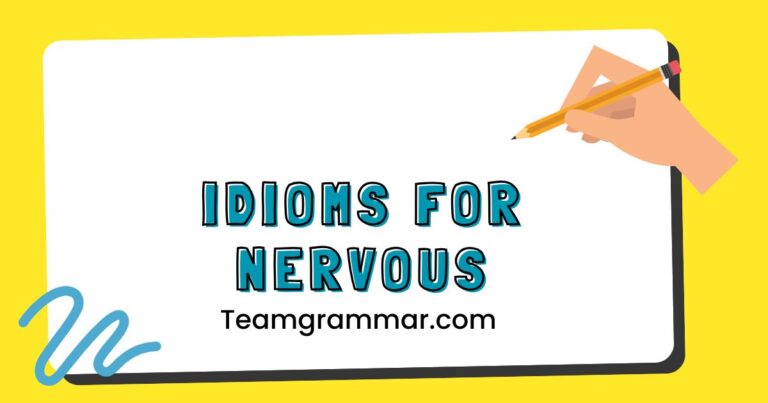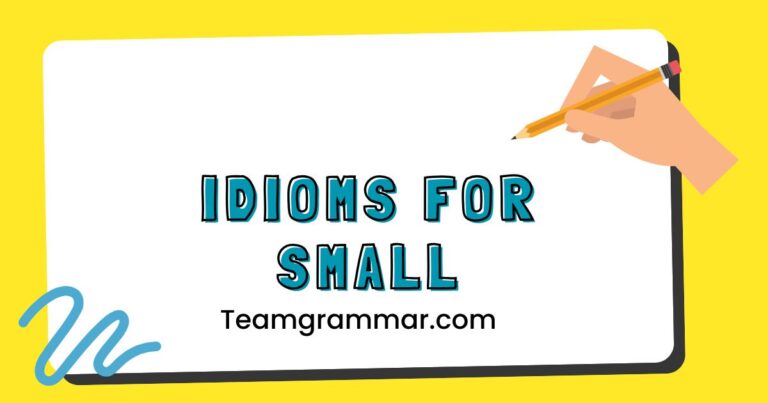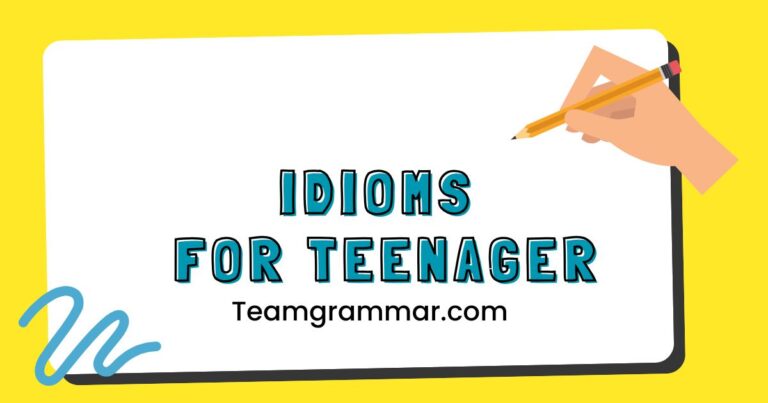49 Idioms for Enjoying Life: Mastering English Expressions
Idioms add color and vibrancy to the English language, allowing speakers to express complex ideas and emotions in concise and memorable ways. Understanding idioms related to having a good time is crucial for comprehending everyday conversations, literature, and media.
These expressions often carry cultural nuances and can significantly enhance your ability to connect with native English speakers. This article will guide you through a variety of idioms that describe enjoyment, relaxation, and celebration, providing definitions, examples, and practice exercises to help you master their usage.
Whether you’re an ESL student or simply looking to enrich your vocabulary, this guide will offer valuable insights into the delightful world of English idioms.
Table of Contents
- Introduction
- Definition of Idioms for Having a Good Time
- Structural Breakdown of Idioms
- Types and Categories of Idioms for Having a Good Time
- Examples of Idioms for Having a Good Time
- Usage Rules for Idioms
- Common Mistakes When Using Idioms
- Practice Exercises
- Advanced Topics: The Nuances of Idiomatic Language
- Frequently Asked Questions
- Conclusion
Definition of Idioms for Having a Good Time
An idiom is a phrase or expression whose meaning cannot be understood from the literal meanings of its individual words. Instead, the phrase has a figurative meaning that is known through common usage.
Idioms related to “having a good time” are used to describe experiences or situations that are enjoyable, pleasurable, or entertaining. They often convey a sense of happiness, excitement, or relaxation.
These idioms are crucial for understanding colloquial English and provide a more vivid and engaging way to communicate.
The function of these idioms is primarily expressive. They allow speakers to convey their feelings and experiences in a more colorful and relatable way.
They can also add humor or emphasis to a conversation. The context in which these idioms are used is usually informal, such as conversations with friends, family, or colleagues.
However, some idioms may also be appropriate in more formal settings, depending on the audience and the overall tone of the communication.
Structural Breakdown of Idioms
Idioms often defy standard grammatical rules because their meanings are not derived from the literal combination of their words. They can take various structural forms, including:
- Phrasal verbs: Kick back (to relax). These consist of a verb and a preposition or adverb.
- Noun phrases: A whale of a time (a very enjoyable time). These are phrases that function as nouns.
- Clauses: Paint the town red (go out and celebrate). These are groups of words containing a subject and a verb.
- Similes: Living the life of Riley (enjoying a luxurious and carefree life). These use “like” or “as” to compare two things.
Understanding the structure of an idiom is less important than understanding its meaning and how to use it correctly. However, recognizing the different forms can help you identify and remember new idioms more easily.
It’s essential to focus on the overall meaning of the phrase rather than trying to analyze it word by word.
Types and Categories of Idioms for Having a Good Time
Idioms related to having a good time can be categorized based on the specific type of enjoyment they describe. Here are some common categories:
Relaxation and Leisure Idioms
These idioms describe activities or states of being that are calming and restful. They often involve taking a break from work or stress.
Celebration and Festivity Idioms
These idioms refer to events or activities that are celebratory in nature, such as parties, holidays, or special occasions.
General Enjoyment Idioms
These idioms describe a general feeling of happiness or pleasure, without specifying a particular activity or event.
Excitement and Thrill Idioms
These idioms refer to activities or experiences that are stimulating and exhilarating.
Examples of Idioms for Having a Good Time
Here are some examples of idioms related to having a good time, organized by category:
Relaxation and Leisure Examples
The following table provides examples of idioms related to relaxation and leisure, with their meanings and example sentences.
| Idiom | Meaning | Example Sentence |
|---|---|---|
| Kick back | To relax and enjoy oneself | After a long week at work, I just want to kick back and watch a movie. |
| Take it easy | To relax and avoid stress | You’ve been working too hard; you need to take it easy for a while. |
| Chill out | To relax and calm down | Chill out, everything is going to be alright. |
| Unwind | To relax after a period of stress or tension | I like to unwind with a good book after a busy day. |
| Take a load off | To relax and rest | Come in and take a load off; you look exhausted. |
| Put your feet up | To relax, especially by sitting or lying down with your feet supported | After cleaning the house, I just want to put my feet up and watch TV. |
| Hang loose | To relax and not worry | Everything will work out, just hang loose. |
| Take a breather | To take a short break to relax | Let’s take a breather before we start the next task. |
| Catch some rays | To sunbathe | We’re going to the beach to catch some rays. |
| Lounge around | To relax and do nothing much | On Sundays, I like to lounge around in my pajamas all day. |
| Take five | To take a five-minute break | The work is hard, so we should take five every hour. |
| Coast along | To proceed without effort or difficulty | Since the project is almost done, we can coast along to the finish line. |
| Mellow out | To become more relaxed and calm | Listening to music helps me mellow out after a stressful day. |
| Rest and recharge | To relax and regain energy | After the marathon, I need to rest and recharge. |
| Veg out | To relax in a passive way, often by watching television | Sometimes I just want to veg out on the couch. |
| Have a staycation | To have a vacation at home or nearby | We can’t afford a trip, so we’ll have a staycation this year. |
| Take time out | To take a break from one’s usual activities | It’s important to take time out for yourself. |
| Breathe easy | To relax and feel relieved | Now that the exam is over, I can breathe easy. |
| Slow down | To reduce one’s pace or intensity of activity | You need to slow down and enjoy life more. |
| Put your feet up | To relax, especially by sitting or lying down with your feet supported | After cleaning the house, I just want to put my feet up and watch TV. |
| Unplug | To disconnect from electronic devices and relax | It’s good to unplug from technology sometimes. |
| Have a lazy day | A day spent relaxing and doing very little | I’m going to have a lazy day tomorrow and do nothing. |
| Take a chill pill | To calm down and relax | You need to take a chill pill and stop worrying so much. |
Celebration and Festivity Examples
The following table provides examples of idioms related to celebrations and festivities, with their meanings and example sentences.
| Idiom | Meaning | Example Sentence |
|---|---|---|
| Paint the town red | To go out and celebrate in a lively way | They won the championship and decided to paint the town red. |
| Have a blast | To have a great time | We had a blast at the party last night. |
| Party animal | Someone who loves to party | He’s a real party animal; he’s always out dancing. |
| Let your hair down | To relax and enjoy oneself without worrying about rules or conventions | It’s time to let your hair down and have some fun. |
| Whoop it up | To celebrate enthusiastically | The crowd was whooping it up after the concert. |
| Join in the fun | To participate in an enjoyable activity | Why don’t you join in the fun and play some games with us? |
| A night to remember | An unforgettable and enjoyable evening | The wedding was truly a night to remember. |
| Live it up | To enjoy life to the fullest | He’s living it up since he retired. |
| Hit the town | To go out for entertainment | Let’s hit the town tonight and see a show. |
| Raise a glass | To make a toast in celebration | Let’s raise a glass to the happy couple. |
| Make merry | To celebrate in a joyful and lively way | They made merry throughout the holiday season. |
| Toast of the town | Someone who is admired and celebrated by everyone | After winning the award, she was the toast of the town. |
| Get down | To dance enthusiastically | Everyone was getting down on the dance floor. |
| Go wild | To behave in a crazy and uncontrolled way, especially during a celebration | The fans went wild when their team won. |
| Have a ball | To have a wonderful time | We had a ball at the carnival. |
| Party hearty | To party with enthusiasm and vigor | They partied hearty all weekend long. |
| Cut a rug | To dance, especially in a lively or energetic way | They were cutting a rug at the wedding reception. |
| Ring in the New Year | To celebrate the start of a new year | We rang in the New Year with friends and family. |
| Make whoopee | To celebrate noisily and enthusiastically | They were making whoopee after the victory. |
| Have a whale of a time | To have a very enjoyable time | We had a whale of a time at the amusement park. |
| Push the boat out | To spend a lot of money on a celebration | They really pushed the boat out for their anniversary party. |
| Roll out the red carpet | To give someone a special welcome | They rolled out the red carpet for the visiting dignitaries. |
| Celebrate in style | To celebrate in a luxurious or extravagant way | They celebrated in style with a champagne toast. |
General Enjoyment Examples
The following table illustrates idioms that express general enjoyment and pleasure, accompanied by example sentences.
| Idiom | Meaning | Example Sentence |
|---|---|---|
| Get a kick out of | To find something amusing or enjoyable | I get a kick out of watching old movies. |
| Be in seventh heaven | To be extremely happy | She was in seventh heaven when she got the job offer. |
| On cloud nine | To be extremely happy | He’s been on cloud nine since he met her. |
| Tickled pink | To be very pleased or amused | She was tickled pink by his compliment. |
| Grin from ear to ear | To smile widely and happily | He was grinning from ear to ear after winning the game. |
| Have the time of your life | To enjoy oneself very much | We had the time of our lives on vacation. |
| Be on top of the world | To feel extremely happy and successful | He felt like he was on top of the world after completing the project. |
| Living the life of Riley | Enjoying a luxurious and carefree life | Since he won the lottery, he’s been living the life of Riley. |
| A slice of heaven | A small piece of something wonderful | This dessert is a slice of heaven. |
| Like a kid in a candy store | To be very excited and delighted | He was like a kid in a candy store when he saw the new toys. |
| Happy as a clam | To be very happy and content | He’s as happy as a clam since he retired. |
| Full of the joys of spring | To be very cheerful and energetic | She’s always full of the joys of spring. |
| Walking on air | To feel very happy and elated | She was walking on air after her promotion. |
| In good spirits | To be cheerful and happy | Despite the challenges, they remained in good spirits. |
| A ray of sunshine | Someone who brings happiness to others | She’s a ray of sunshine in our office. |
| Beaming with joy | To show great happiness | They were beaming with joy at the wedding. |
| Happy camper | A contented person | He’s a happy camper with his new job. |
| Laugh your head off | To laugh very hard | We laughed our heads off at the comedy show. |
| Have a good laugh | To enjoy laughing | We had a good laugh reminiscing about old times. |
| A barrel of laughs | A very funny or enjoyable person or thing | The movie was a barrel of laughs. |
| Tickle someone’s funny bone | To amuse someone | The comedian really tickled my funny bone. |
| Crack someone up | To make someone laugh a lot | His jokes always crack me up. |
| A laugh a minute | Something very funny and entertaining | The party was a laugh a minute. |
Excitement and Thrill Examples
The following table presents idioms that convey excitement and thrill, along with their meanings and example sentences.
| Idiom | Meaning | Example Sentence |
|---|---|---|
| Get a thrill out of | To find something exciting | He gets a thrill out of riding roller coasters. |
| Full of beans | To be energetic and enthusiastic | The kids are full of beans today. |
| Buzzing | To be full of energy and excitement | The city was buzzing with activity. |
| On the edge of your seat | To be very excited and attentive | The movie had us on the edge of our seats. |
| Get a rush | To experience a sudden feeling of excitement | He gets a rush from extreme sports. |
| High on life | To feel exhilarated and happy without drugs or alcohol | She’s high on life after finishing her degree. |
| Pumped up | To be very excited and motivated | The team is pumped up for the game. |
| Raring to go | To be very eager and ready to start something | We’re raring to go on our adventure. |
| A shot in the arm | Something that energizes or revitalizes | The new project was a shot in the arm for the company. |
| All fired up | To be very excited and enthusiastic | They were all fired up about the new idea. |
| Get a kick out of | To enjoy something very much | He gets a kick out of playing video games. |
| Life of the party | Someone who is lively and entertaining at social gatherings | She’s always the life of the party. |
| Up for it | Willing and enthusiastic to do something | Are you up for it to go skydiving? |
| Jumping for joy | To be extremely happy and excited | He was jumping for joy when he heard the news. |
| Thrilled to bits | Extremely pleased and excited | She was thrilled to bits about the surprise party. |
| Get a buzz out of | To get a feeling of excitement or pleasure | He gets a buzz out of helping others. |
| Turn someone on | To excite or stimulate someone’s interest | The new project really turned him on. |
| Full of pep | To be lively and energetic | The children were full of pep after their nap. |
| Energetic as a bunny | To be very lively and active | She’s as energetic as a bunny in the morning. |
| Wired | To be excited or nervous | I’m feeling wired after drinking too much coffee. |
| Get your blood pumping | To make someone feel excited and energetic | The roller coaster really got my blood pumping. |
| Keep you on your toes | To keep someone alert and ready for anything | The job really keeps you on your toes. |
| Amped up | To be very excited and enthusiastic | The crowd was amped up for the concert. |
Usage Rules for Idioms
Idioms are context-dependent, and their usage must align with the intended meaning and tone. Here are some rules to keep in mind:
- Understand the meaning: Always ensure you fully understand the meaning of an idiom before using it. Using an idiom incorrectly can lead to confusion or miscommunication.
- Consider the audience: Be mindful of your audience. Some idioms may not be appropriate in formal settings or with people who are not familiar with colloquial English.
- Maintain consistency: Avoid mixing idioms or using them in a way that contradicts their established meaning.
- Pay attention to tense: Adjust the tense of the idiom to fit the context of your sentence. For example, “He had a blast” (past tense) vs. “We are going to have a blast” (future tense).
- Use them sparingly: While idioms can add color to your language, overuse can make your speech sound unnatural or forced.
Common Mistakes When Using Idioms
Here are some common mistakes to avoid when using idioms:
| Incorrect | Correct | Explanation |
|---|---|---|
| “I had a whale of a time to the party.” | “I had a whale of a time at the party.” | The preposition “at” is correct with the idiom “have a whale of a time.” |
| “She is in the seventh sky.” | “She is in seventh heaven.” | The correct idiom is “in seventh heaven,” not “seventh sky.” |
| “Let down your hair.” | “Let your hair down.” | The correct word order is “let your hair down.” |
| “We painted the town redly.” | “We painted the town red.” | “Paint the town red” is the correct idiom; “redly” is incorrect. |
| “He is on cloud seven.” | “He is on cloud nine.” | The correct idiom is “on cloud nine,” not “cloud seven.” |
Practice Exercises
Test your understanding of idioms for having a good time with these exercises.
Exercise 1: Fill in the Blanks
Complete the following sentences with the appropriate idiom from the list below.
(kick back, paint the town red, have a blast, let your hair down, take it easy)
| Question | Answer |
|---|---|
| 1. After the exams, we’re going to __________. | paint the town red |
| 2. I just want to __________ this weekend and watch movies. | kick back |
| 3. Don’t stress too much about the presentation; just __________. | take it easy |
| 4. We __________ at the concert last night. | had a blast |
| 5. It’s a party, so __________ and have fun! | let your hair down |
| 6. After a long day at work, I like to __________ and read a book. | kick back |
| 7. We decided to __________ after our team won the championship. | paint the town red |
| 8. I’m going to __________ this weekend and catch up on my sleep. | take it easy |
| 9. The kids __________ at the amusement park. | had a blast |
| 10. It’s time to __________ and enjoy the vacation. | let your hair down |
Exercise 2: Matching
Match the idiom with its meaning.
| Idiom | Meaning | Answer |
|---|---|---|
| 1. On cloud nine | a. To relax and enjoy oneself | 1-b |
| 2. Kick back | b. To be extremely happy | 2-a |
| 3. Have a whale of a time | c. To do nothing much | 3-e |
| 4. Full of beans | d. To celebrate noisily | 4-f |
| 5. Lounge around | e. To have a very enjoyable time | 5-c |
| 6. Make whoopee | f. To be energetic and enthusiastic | 6-d |
| 7. Take a chill pill | g. Relax, calm down | 7-g |
| 8. Get a kick out of | h. Find something amusing | 8-h |
| 9. Toast of the town | i. Celebrated by everyone | 9-i |
| 10. Pumped up | j. Very excited and motivated | 10-j |
Exercise 3: Multiple Choice
Choose the correct idiom to complete the sentence.
| Question | Options | Answer |
|---|---|---|
| 1. After finishing the marathon, she was __________. | a) full of beans b) on cloud nine c) taking it easy | c) taking it easy |
| 2. The party was so much fun; we really __________. | a) painted the town red b) took a load off c) lived it up | c) lived it up |
| 3. He’s been __________ since he got his promotion. | a) kicking back b) on top of the world c) chilling out | b) on top of the world |
| 4. Let’s __________ and watch some TV. | a) raise a glass b) lounge around c) cut a rug | b) lounge around |
| 5. The fans __________ when their team won the championship. | a) took a breather b) went wild c) had a ball | b) went wild |
| 6. I __________ watching old movies with my friends. | a) get a kick out of b) chill out c) take it easy | a) get a kick out of |
| 7. After a stressful week, it’s important to __________. | a) let your hair down b) take a breather c) paint the town red | b) take a breather |
| 8. She’s always __________ at parties. | a) happy as a clam b) the life of the party c) on cloud nine | b) the life of the party |
| 9. The kids are __________ for their summer vacation. | a) pumped up b) mellowed out c) coasting along | a) pumped up |
| 10. Let’s __________ to the happy couple. | a) make whoopee b) raise a glass c) get down | b) raise a glass |
Advanced Topics: The Nuances of Idiomatic Language
Idioms can evolve over time, and their meanings can shift or acquire new nuances. Some idioms may have regional variations, meaning they are more commonly used or understood in certain geographic areas.
Additionally, the use of idioms can be influenced by social and cultural factors, such as age, gender, and socioeconomic status. Understanding these nuances can help you use idioms more effectively and avoid potential misinterpretations.
It’s also important to be aware of the potential for idioms to be offensive or insensitive, particularly if they are based on stereotypes or historical events.
Frequently Asked Questions
- What is the difference between an idiom and a proverb?
An idiom is a phrase whose meaning is different from the literal meaning of its words, while a proverb is a short, well-known saying that expresses a general truth or piece of advice. Idioms are more about figurative language, whereas proverbs offer wisdom or guidance.
- How can I improve my understanding of idioms?
Read widely, listen to native speakers, and pay attention to the context in which idioms are used. Keep a notebook of new idioms you encounter and practice using them in your own speech and writing. Online resources and idiom dictionaries can also be helpful.
- Are idioms the same in all English-speaking countries?
No, idioms can vary between different English-speaking countries and regions. Some idioms are specific to the United States, while others are more common in the United Kingdom, Australia, or Canada. Be aware of these regional variations when communicating with people from different backgrounds.
- Can I use idioms in formal writing?
It depends on the context and the audience. In general, idioms are more appropriate for informal communication, such as conversations with friends and family. In formal writing, such as academic papers or business reports, it’s best to avoid idioms unless they are widely understood and contribute to the clarity and effectiveness of your writing.
- What should I do if I don’t understand an idiom?
Don’t be afraid to ask for clarification. Most native speakers will be happy to explain the meaning of an idiom if you ask politely. You can also look up the idiom in a dictionary or online resource.
- How can I avoid using idioms incorrectly?
Pay attention to the context in which idioms are used and make sure you understand their meaning before using them. Practice using idioms in your own speech and writing, and ask for feedback from native speakers. Avoid using idioms if you are unsure of their meaning or appropriateness.
- Are there any idioms that should be avoided?
Yes, some idioms may be considered offensive or insensitive, particularly if they are based on stereotypes or historical events. Be aware of the potential for idioms to be misinterpreted or to cause offense, and avoid using them if you are unsure of their appropriateness.
- Why are idioms so important in English?
Idioms are important because they add color and expressiveness to the English language. They allow speakers to convey complex ideas and emotions in a concise and memorable way. Understanding idioms is crucial for comprehending everyday conversations, literature, and media, and for connecting with native English speakers
and for connecting with native English speakers on a deeper level.
Conclusion
Mastering idioms related to having a good time can significantly enhance your English language skills and cultural fluency. By understanding the meanings, usage rules, and nuances of these expressions, you can communicate more effectively and connect with native speakers on a deeper level.
Remember to practice using these idioms in your own speech and writing, and be mindful of the context and audience. With dedication and practice, you’ll be well on your way to mastering the delightful world of English idioms and enjoying the language to its fullest.

